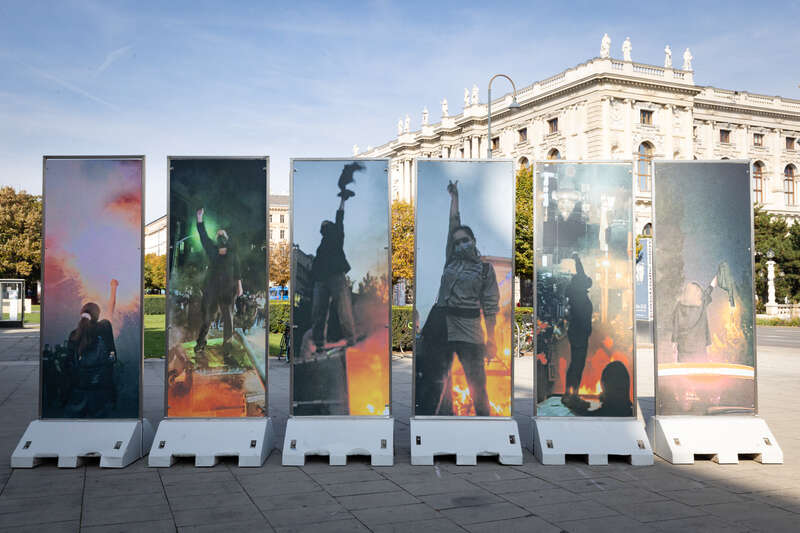
Hoda Afshar, Iran Women, 2022 © MuseumsQuartier Wien, Foto: Lorenz Seidler – eSeL
Woman Life Freedom
Editor's note. For this contribution, we have put the Iranian artist Hoda Afshar (based in Naarm/Melbourne) and the Iranian poet Haleh Chinikar (based in Brussels) together. Afshar collected images of Iranian women street protestors and re-appropriated them for a six-part photo installation that was presented in the public space on the forecourt of the MuseumsQuartier Wien. Chinikar’s poem Your Name Will Become Our Code was specifically written for our printed issue Trigger #4: Together (more info below this contribution) in relation to these images.
Hoda Afshar and Haleh Chinikar
14 dec. 2022 • 5 min
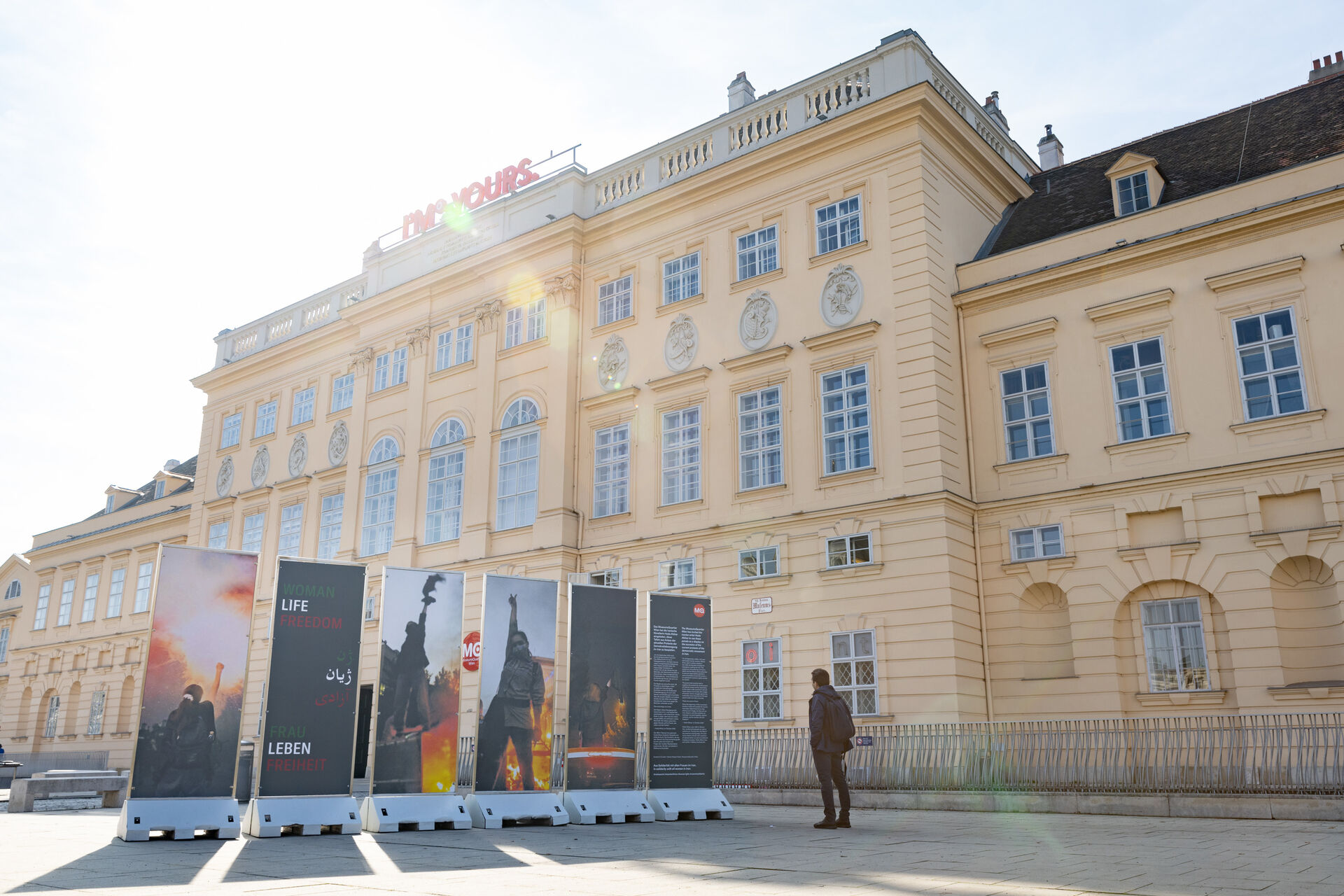
Artist statement
On 16 September, 2022, a 22-year-old Kurdish-Iranian woman, Mahsa Amini, died in police custody in Iran after having been arrested for improperly covering her hair. The suspicious circumstances of Amini’s death and the failure of the authorities to assume responsibility sparked a wave of protests across the country—an uprising for women’s rights and led by women.
The government quickly tried to suppress the protests by shutting down all internet access and by responding to the nation-wide movement with yet more violence and arrests (as of today several hundred are estimated dead, and countless others have been imprisoned or are missing). But images of Iranians’ heroic struggle against the authorities have streamed out through social media and other channels.
These are some of them.
Since the beginning of this movement, Iranians inside and outside the country have been determined not to stop sharing such images, for they are our only weapon, and they embody our message: we stand together, against violence, and for women, life and freedom.
Hoda Afshar, in October 2022
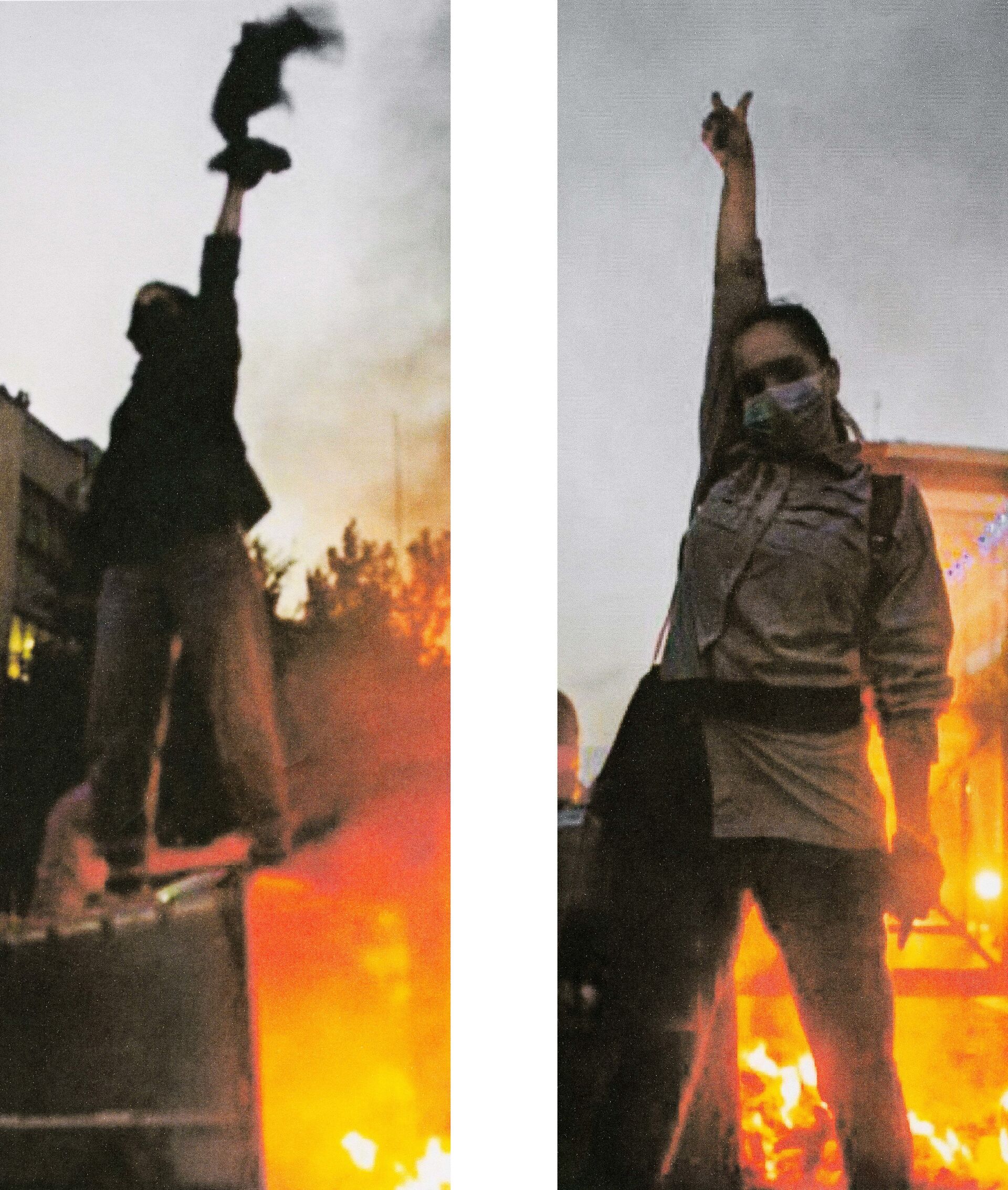
Your Name Will Become Our Code
looking at the numbers,
at the names.
chanting all together:
Together
We
Are
Stronger
together, we are stronger.
together, we are stronger.
Woman, Life, Freedom
Woman, Life, Freedom
bodies trembling.
bodies trembling.
it is my soul, my city.
it is my soul
who trembles,
every day
every day
every day
any
day.
cities that tremble.
bodies that tremble.
they say: those things are always happening over there.
and I ask myself, where is over there? where is over there that is not here?
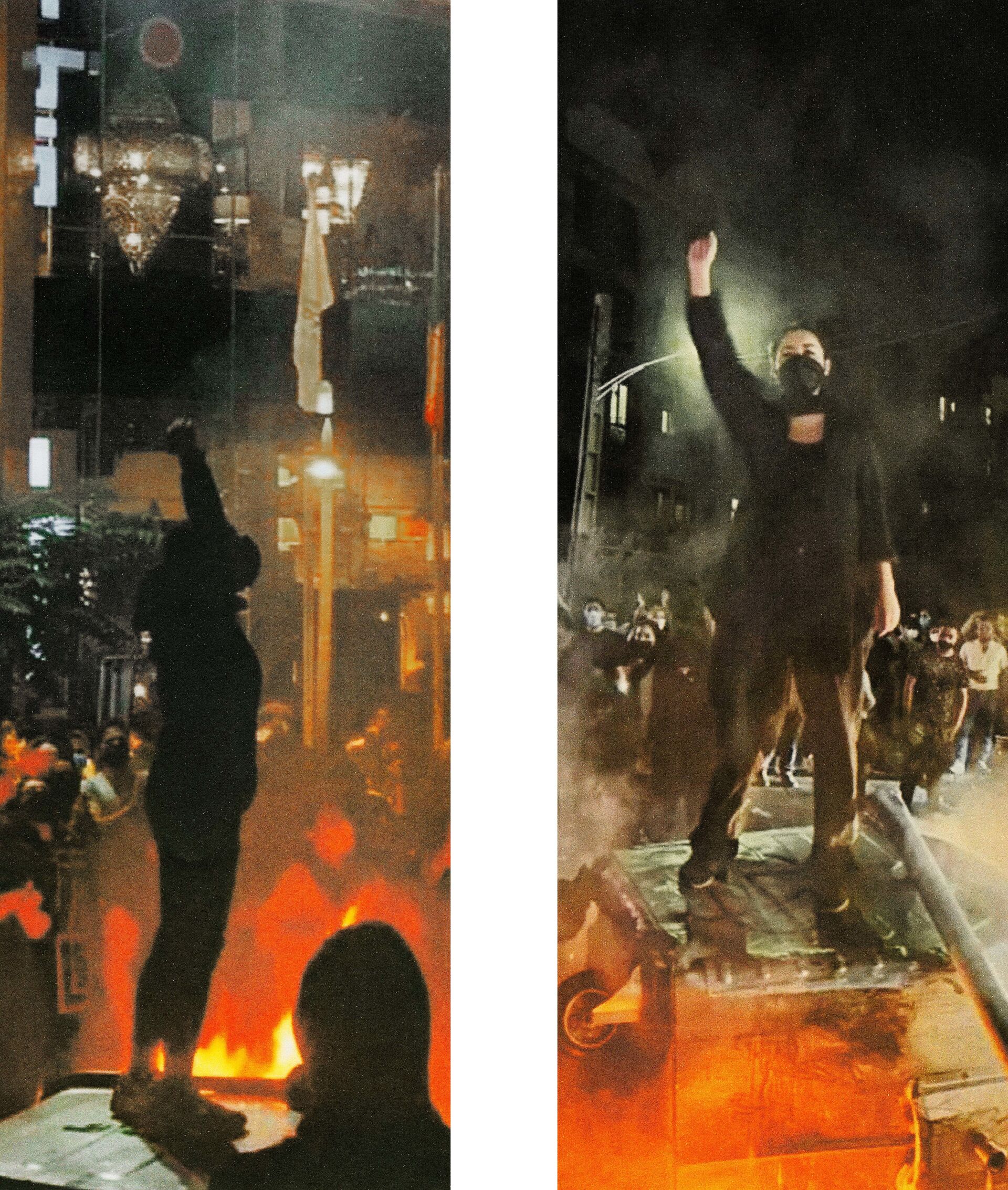
why is the value of our lives not the same over here and over there?
who once drew a line?
a line that divided our bodies and those of others, our lives and those of others.
Woman, Life, Freedom
Woman, Life, Freedom
Woman, Life, Freedom
between a city and its people; how far is the distance?
cities that do not tremble; what color are they?
those cities?
what color are they?
and people who do not tremble? their souls
their dear souls
those souls.
what color are they?
oh, those dear souls.
the souls that tremble,
those dear souls
those dear souls
at
houses without
a roof
a gate
a wall.
mercilessly
mercilessly
mercy
mercy
be merciful
merciful.
in lonely alleys,
bottom of empty streets full of ashes.
Ash
Ash
Ash
Red
Red
Red
Red
Bullet
Bullet
Bullet
Bullet
how many more?
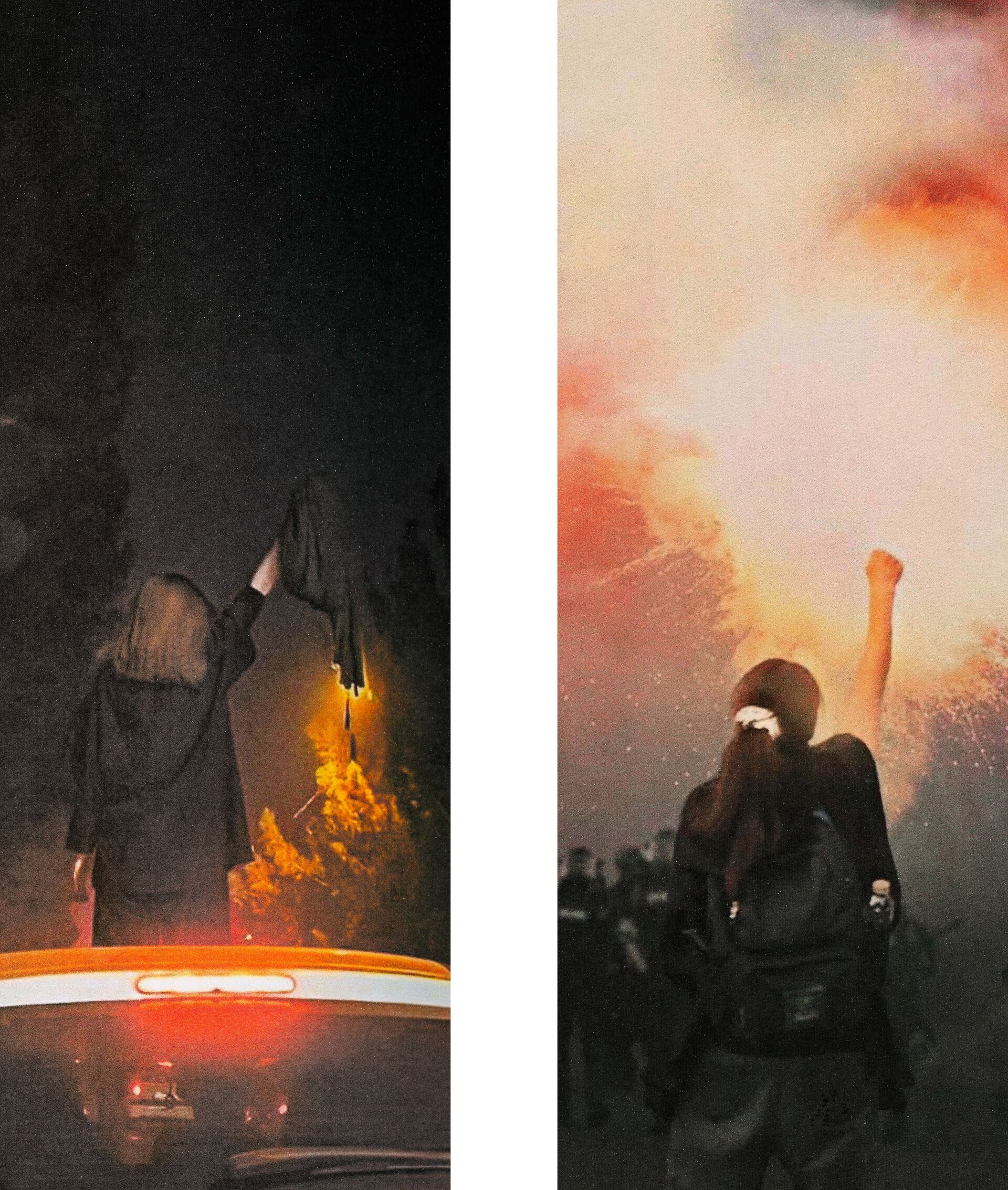
those dear souls
drained,
exhausted,
mutilated,
oppressed,
tortured,
tortured, tortured
bodies, bodies,
those bodies.
how do these people tremble?
how do we tremble?
a city,
how does a city tremble?
how do the people of a country tremble?
to how many,
how many,
Richter scale?
are they shaking?
a land is shaking?
smoke
it’s a land
a land
it becomes ashes
smoke
you put it on ashes
you
with those filthy hands of yours
how do the people of a city tremble? their lives?
my city
those souls
those dear souls
Oh, those dearest lives
far, far, far, far . . .
and those names?
those names,
names to be always remembered:
Jina, your name will become our code.
Woman, Life, Freedom
This article was commissioned by Trigger in the context of its upcoming printed issue Trigger #4: Together – to be published in February 2023. This issue is guest-edited by Susan Meiselas and explores collaborative practices in photography and beyond. Sixteen contributions engage with strategies of co-creation that stretch notions of authorship and ownership, breaking through existing heteronormative, state-owned, or hyper-individual categories.